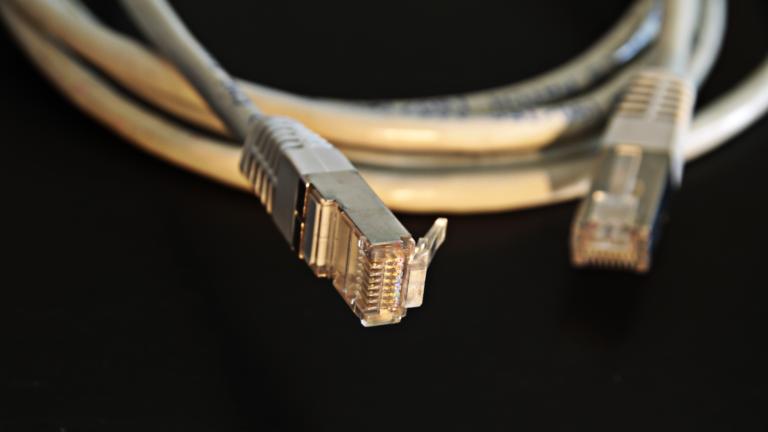If it feels like a number of smaller and regional fiber overbuilders have picked up their deployment pace in 2023, that’s because in many cases they have.

Impact: New research from the analysts at Wall Street firm Cowen indicates that some of the country’s large fiber players, including AT&T, Altice, Consolidated, Frontier, and Lumen, could pull back on their fiber buildouts this year. Prior to the release of the report, only AT&T had officially reported its earnings and revealed it expected to hit between 2 million and 2.5 million new passings in each of the next three years to reach its goal of 30 million new fiber passings by the end of 2025. Lumen had previously said it would revisit its goal of 12 million fiber locations and has since reported its Q4 earnings, where it released an updated fiber addressable location opportunity of 8-10 million.
But it doesn’t appear that the country’s fiber overbuilders plan to slow down anytime soon, as many of them have started 2023 with a burst of expansion and deployment announcements. Among the smaller fiber players making waves so far in 2023 — with near constant updates about new activations, construction starts, and buildout agreements — are Metronet, Greenlight Networks, GoNetspeed, and IQ Fiber. Several multi-gigabit speed updates have also emerged within this cohort of fiber overbuilders since 2023 began, including from Greenlight and Great Plains Communications.
Metronet has been particularly active thus far in 2023, with announced network activations in 10 markets across five states: Florida, Iowa, North Carolina, Virginia, and Wisconsin. Although Metronet bills its fiber as 10 Gbps-capable, so far only business customers can access that speed. On the consumer side, the majority of Metronet’s 2023 launches have featured speeds up to 2 Gbps in smaller markets like Beavercreek, OH; Hope Mills, NC; Iowa Falls, IA; Jacksonville, NC, La Crosse, WI; Norfolk, VA; Sioux City, IA; St. Joseph, MO; and Waterloo, IA. A launch in Altamonte Springs, FL, where WOW just launched 5 Gbps service, appears to offer gigabit service. Metronet also started construction on a new fiber buildout in Daytona Beach, FL, but did not specify what speed it will offer there.
New York’s Greenlight Networks started the year off with a revision to its fiber Internet tiers. The company reduced the price of its 2 Gbps service by 50% to $100/mo and at the same time added 5 Gbps service for $200/mo. Greenlight also announced a $9M investment in the Hudson Valley region of New York (out of $57M it plans to spend there), with construction slated to start this year in Wallkill, Mechanicstown, and Scotchtown. Greenlight more recently revealed plans to spend $12.5 million to expand symmetrical multi-gigabit fiber to more than 12,800 locations in the Buffalo suburb of North Tonawanda later this year, with service scheduled to come online as soon as August.
GoNetspeed, based in Rochester, NY, has also been busy this year, with new symmetrical gigabit projects announced for Rockville, Vernon, and South Windsor, CT. The company also launched gigabit service in Cape Bangor, Elizabeth, Old Town, and Orono, ME in the opening weeks of 2023, and said it had wrapped up deployment projects in Naugatuck and Glastonbury, CT as well as in Topsham, ME.
Northeastern Florida provider IQ Fiber, which operates around Jacksonville and plans to cover 60,000 locations in the region with fiber, has moved quickly this year to further its symmetrical multi-gigabit expansion efforts. The company has built on some initial activations that took place in late 2022 in Duval County to expand service to additional communities in neighboring Clay County, including the Town of Orange Park, Fleming Island, Lakeside, and Ridgeview. It also announced new buildouts to the beach communities of Anastasia Island in St. Johns County and Fernandina Beach in Nassau County. In total, IQ Fiber has projects underway in four counties in the Jacksonville market with a network capable of symmetrical speeds up to 10 Gbps, although for now it seems to be focusing on gigabit service.
Other overbuilders that started 2023 with expansion updates include Bluepeak, which lit up its first addresses in Sheridan, WY and continues to add to ongoing buildouts in the Oklahoma markets of Enid, Lawton, and Stillwater; Lumos, which revealed plans to make South Carolina the third state in its footprint this year and will deploy fiber to an unspecified number of locations in the Columbia metro area; and Texas provider Tachus, which doubled its footprint to 100,000 passings in 2022 and has active projects underway in several North Houston communities, including Porter, Willis, Humble, and Huffman .
Although it hasn’t made any expansion moves yet this year, Great Plains Communications did join Greenlight Networks in bumping up the speed on its top fiber tier. The Nebraska-based regional provider launched symmetrical 2 Gbps service this month to 10 communities, including nine in Nebraska (Blair, Broken Bow, Elkhorn, Fremont, Grand Island, Kearney, McCook, North Bend, Valley and Wood River) as well as in Council Bluffs, IA.
All of these expansion announcements and service launches seem to indicate that many of the country’s smaller fiber overbuilders have just hit their stride just as larger fiber players are pulling back on their own buildouts. It’s possible this dichotomy in fiber strategy between big and small providers stems from supply chain issues plaguing fiber buildouts for the last couple of years. As a result, perhaps the Tier 2 and smaller overbuilders have finally gotten their hands on the equipment they need to shift into update mode. It’s also likely these providers see opportunity in the coming distribution of billions of dollars of federal broadband funding and want the decisionmakers in their states to understand their service capabilities. The push by smaller overbuilders to expand their fiber footprints and extend symmetrical gigabit and multi-gigabit service to additional communities will be something to watch this year.
